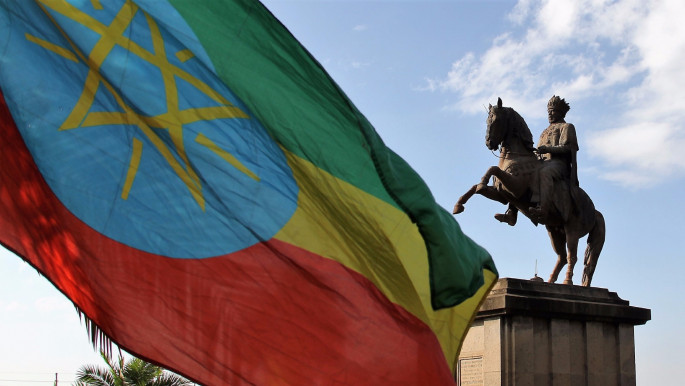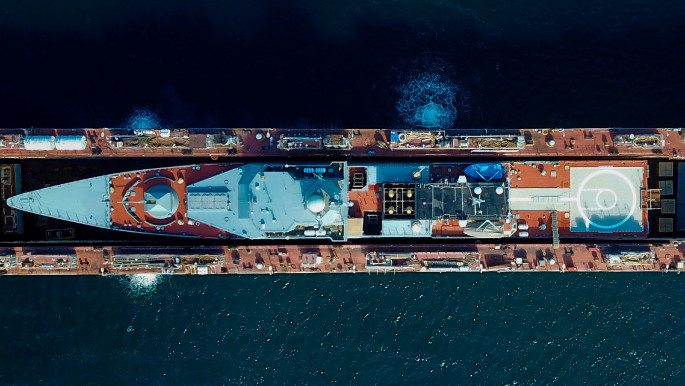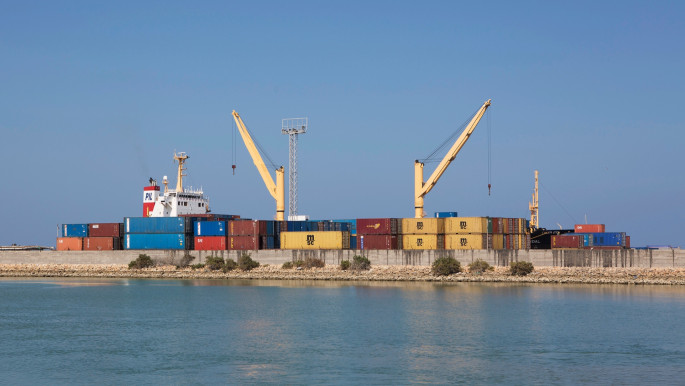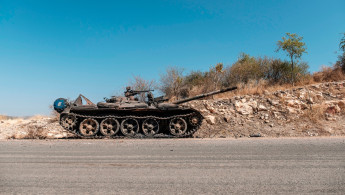The geopolitical shadow of Ethiopia's Tigray conflict
Meanwhile, regional powers with interests in the conflict, or fears that the instability may hit them, could seek to influence the conflict's outcome in Ethiopia's favour.
A brewing civil war erupted between the government and leaders of the Tigray province after Ahmed send troops there on 4 November, accusing the separatist Tigray People's Liberation Front (TPLF) of attacking a government base and holding "illegal elections."
These tensions were long standing and had been expected to erupt. As the International Crisis Group (ICG) said, "watching tensions rise between Ethiopia's federal leadership and the TPLF over the past few months has been like watching a train crash in slow motion."
Prime Minister Ahmed ordered Tigray's leaders to surrender by Wednesday last week, setting a 72-hour deadline. However the opposition rejected these demands and said they were "ready to die" to defend their homeland. On Thursday, Ahmed said Addis Ababa would launch the "final phase" of the assault on the regional capital Mekelle, which hosts around 500,000 civilians.
 |
The Ethiopian army's assault on the Tigray province risks triggering instability elsewhere in the Horn of Africa |  |
Ahmed on 25 November warned the international community against "unwelcome and unlawful acts of interference" in Ethiopia's conflict. However, the US has thus far shown limited interest in engaging with its key security ally Ethiopia, apart from Washington's top diplomat to Africa condemning "the TPLF's unjustifiable attacks against Eritrea." Meanwhile the African Union (AU) has also been criticised as redundant. This could enable individual regional countries to take the driver's seat.
After government forces reportedly captured Tigray's capital of Mekelle on Sunday, TPLF leader Debretsion Gebremichael told Reuters that the war was not over and that his forces were still "fighting the invaders." Tensions are therefore far from resolved.
 |
|
| Read more: Divide and survive: Ethiopia's relations with the Gulf and Turkey |
Yet rather than supporting peaceful settlement to prevent further violence and civilian suffering, the current power balance would shore up Ethiopia's control and bolster its military actions in Tigray.
Ethiopian soldiers have reportedly used Eritrea's airport as a transit hub for their military offensive in the Tigray region, showing how Eritrea could also be driving the violence. Eritrea has tensions with the TPLF and was even in conflict with the faction between 1998 and 2000. Therefore, it already has ideological interests to back Addis Ababa, along with security concerns.
Yet because of harsh press censorship in Eritrea, it is difficult to gauge the full extent to which it is involved in the conflict.
Significantly, a leading country to previously take an assertive stance in the Horn of Africa, with interests in Ethiopia's stability, is the United Arab Emirates (UAE). Emirati Foreign Minister Sheikh Abdullah bin Zayed in November called on warring parties to end the fighting and "stressed the need to return and implement the rule of law." However, due to its geopolitical interests in the Horn of Africa, Abu Dhabi has ulterior motives, beyond simply being a peacemaker.
"The UAE has given three billion dollars to the Ethiopian economy to support a key broker and influencer in the Horn of Africa, which the UAE considers a critical region for its strategic depth," Dr. Andreas Krieg, Assistant Professor at Kings College London, told The New Arab.
 |
The lack of action from the international community could see regional powers seek to influence the conflict's outcome for their own interests |  |
"The TPLF remains as an intermediary in a region with important resource wealth and remains a potential obstacle to UAE power and economic projection in the country. Thus, helping the Ethiopian government to remove them, eliminates a potential obstacle while buying credit with Abiy going forward," he added.
Eritrea has also moved towards the Saudi and UAE geopolitical axis, with a clear position against Qatar and Turkey. The UAE meanwhile has sought to cancel out what it perceives as the potential influence of these two countries.
Moreover, Abu Dhabi runs a military base in Eritrea's port city of Assab, which has served as a launching pad for its operations in Yemen. It also announced its plans to move forward with an oil pipeline between Addis Ababa and Assab last May. The UAE was also a peace broker between Eritrea and Ethiopia in 2018, ending two decades of tensions between the countries. It will therefore seek to protect the status quo in the Horn of Africa.
 |
|
| Read more: A gateway to Africa: Russia's new naval base in Sudan |
Another country that seeks to address the conflict is Egypt. Both Cairo and Addis Ababa have had tensions over Ethiopia's ongoing Grand Ethiopian Renaissance Dam (GERD) project on the river Nile, which Egypt fears could limit its own access to water. However, Egypt could also work with Eritrea to contain the violence.
After receiving his Eritrean counterpart on 18 November, Egyptian Foreign Minister Sameh Shoukry "emphasized the great concern Egypt attaches to the stability of the region and its follow-up to the current development." Shoukry also expressed Cairo's "full support for all efforts aimed at strengthening peace and security in the region."
 |
The UAE has given three billion dollars to the Ethiopian economy to support a key broker and influencer in the Horn of Africa, which Abu Dhabi considers a critical region for its strategic depth |  |
Sudan, like Egypt, has tensions with Ethiopia over its Grand Renaissance Dam, though it is also concerned about the conflict spilling over its borders, and would prefer to support Ethiopia's stability. Already the conflict has seen over 40,000 refugees cross into Sudan's border, and warnings from the UN that over 200,000 could reach Sudan in the coming months.
Yet aside from these concerns, a key factor is that the UAE has influenced Sudan's post-revolution government since spring 2019 and has established closer ties with military figures in its transitional government. This can be shown in Khartoum's decision to normalise relations with Israel in October, which the UAE reportedly brokered, following its own normalisation with Tel Aviv.
 |
|
| Read more: Troubled waters: Ports and power in the Horn of Africa |
Due to its own interests and potential Emirati coaxing, Khartoum could therefore take Ethiopia's side and seek to pressure the TPLF.
Aside from possible coercive diplomacy, there have been some unconfirmed allegations of the UAE taking a more direct role in the conflict. The investigative journalism website Bellingcat acknowledged claims from senior TPLF official Getachew Reda that Emirati drones were aiding Ethiopia's war from the Assab air base. Bellingcat noted that this is unproven, however.
"Apart from financial aid though, we cannot verify reports about military support at this point," said Krieg. In any case, the lack of action from the international community could indirectly influence the conflict's outcome and prevent a just settlement in the Tigray province, as regional powers could seek to influence the conflict's outcome for their own interests, and boost the Ethiopian government.
Follow him on Twitter: @jfentonharvey



